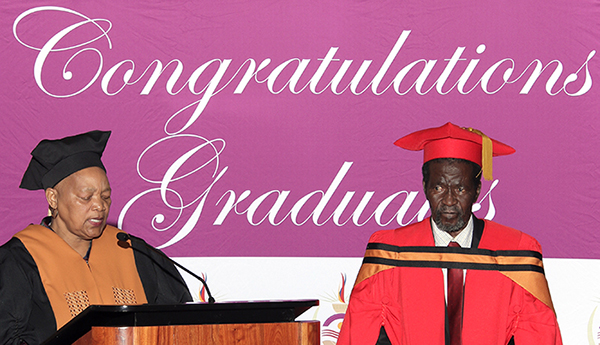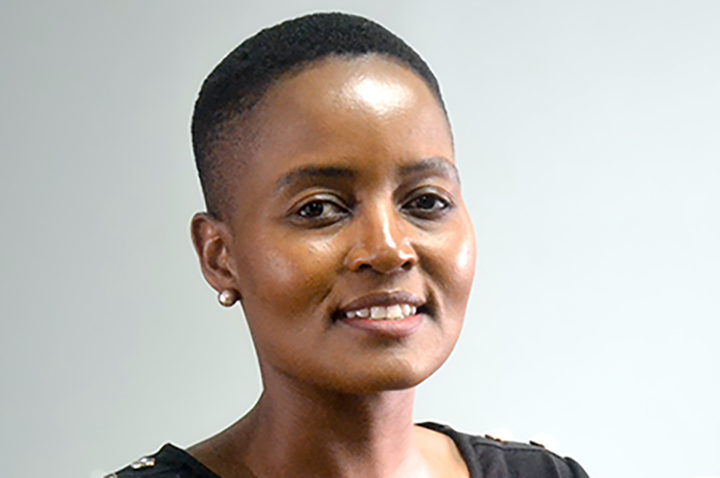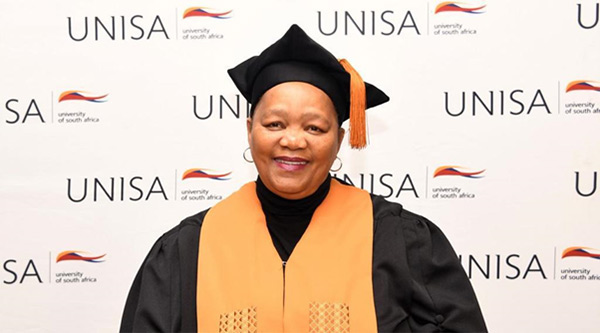
UNESCO-UNISA Africa Chair in Nanoscience and Nanotechnology (U2ACN2) recently hosted an enlightening webinar. Professor Mariano de Souza delivered a presentation on strongly correlated electronic systems (superconductivity, Mott insulators, charge ordering, and related topics), phase transitions, and critical phenomena. Souza is a Physics professor at São Paulo State University in Rio Claro, São Paulo (SP), Brazil.
He started his presentation by recalling the fundamental physical aspects concerning phase transitions and critical phenomena. Then, he discussed the physics of strongly correlated electron systems, namely the quasi-1D and 2D systems, where exotic phases of matter can emerge upon pressurisation or chemical pressure, such as Mott insulator and superconductivity. The importance of high-resolution thermal expansion measurement was highlighted. Open questions in the field were also presented.
Prof Mariano de Souza, São Paulo State, University, Brazil
Souza's discussion included ongoing experimental investigations in his laboratory, which focused on probing the possible multiferroic/magnetoelectric character of the so-called Fabre salts of the (TMTTF)2X family, where TMTTF is tetramethyl tetrathiafulvalene and X a monovalent counter anion. In this regard, he briefly discussed the ionic contribution to the constant dielectric measurements associated with the Mott-Hubbard ferroelectric phase in these systems that was measured in his laboratory and published a few years ago.
His research group has been working on theoretical work concerning the Grüneisen parameter, which is enhanced close to critical points and quantifies caloric effects. Some of the work covers the calculation and interpretation of the Grüneisen parameter for various physical scenarios, such as the ideal and Fermi gases and Bose-Einstein condensation, the adiabatic magnetisation due to the electrocaloric effect without external magnetic field by solely manipulating the mutual interactions between spins, the proposal of an electronic Griffiths-like phase in the vicinities of the first-order transition line of the Mott transition in the spin-liquid candidate system, and the proposal of key ingredients in terms of materials design based on entropy arguments to maximise caloric effects.
A recently published work on employing the Ising model to describe the dissemination of Covid-19 was also presented, where spins – up and down – represent infected and non-infected people. Souza also briefly discussed one of his latest submitted works associated with an unprecedented connection between condensed-matter physics and cosmology to describe the universe's expansion in terms of the Grüneisen parameter.
In conclusion, a summary of his results was issued. Highlights pointed out that experiments and theory always go hand in hand in unveiling fundamental aspects that can lead to great discoveries to benefit society.
Prof Mariano de Souza, São Paulo State, University, Brazil and Prof Malik Maaza, UNESO-UNISA Africa Chair in Nanoscience and Nanotechnology (U2ACN2) engaging during the webinar
To watch the webinar, click here: https://www.youtube.com/watch?v=1tIEjRH_0jg&list=PLKZcqdW7Jl0ROErzUR_kcyDvl1iMc9zNg&index=5
* By Hanli Wolhuter, Communication and Marketing Specialist, Musa Buthelezi, Intern, College of Graduate Studies and Dr Akbari Mahmood Post-Doctoral Fellow, UNESCO-UNISA Africa Chair in Nanoscience and Nanotechnology
Publish date: 2023/04/25
 Unisa empowers award-winning agro-cosmetics entrepreneur
Unisa empowers award-winning agro-cosmetics entrepreneur
 Unisa initiative offers early-career academics "a stepping stone towards greatness"
Unisa initiative offers early-career academics "a stepping stone towards greatness"
 Seasoned meteorologist joins Unisa
Seasoned meteorologist joins Unisa
 Unisa celebrates the 2023 and 2024 Hiddingh-Currie Award winners
Unisa celebrates the 2023 and 2024 Hiddingh-Currie Award winners
 Unisa celebrates a project of hope, dignity and student success
Unisa celebrates a project of hope, dignity and student success